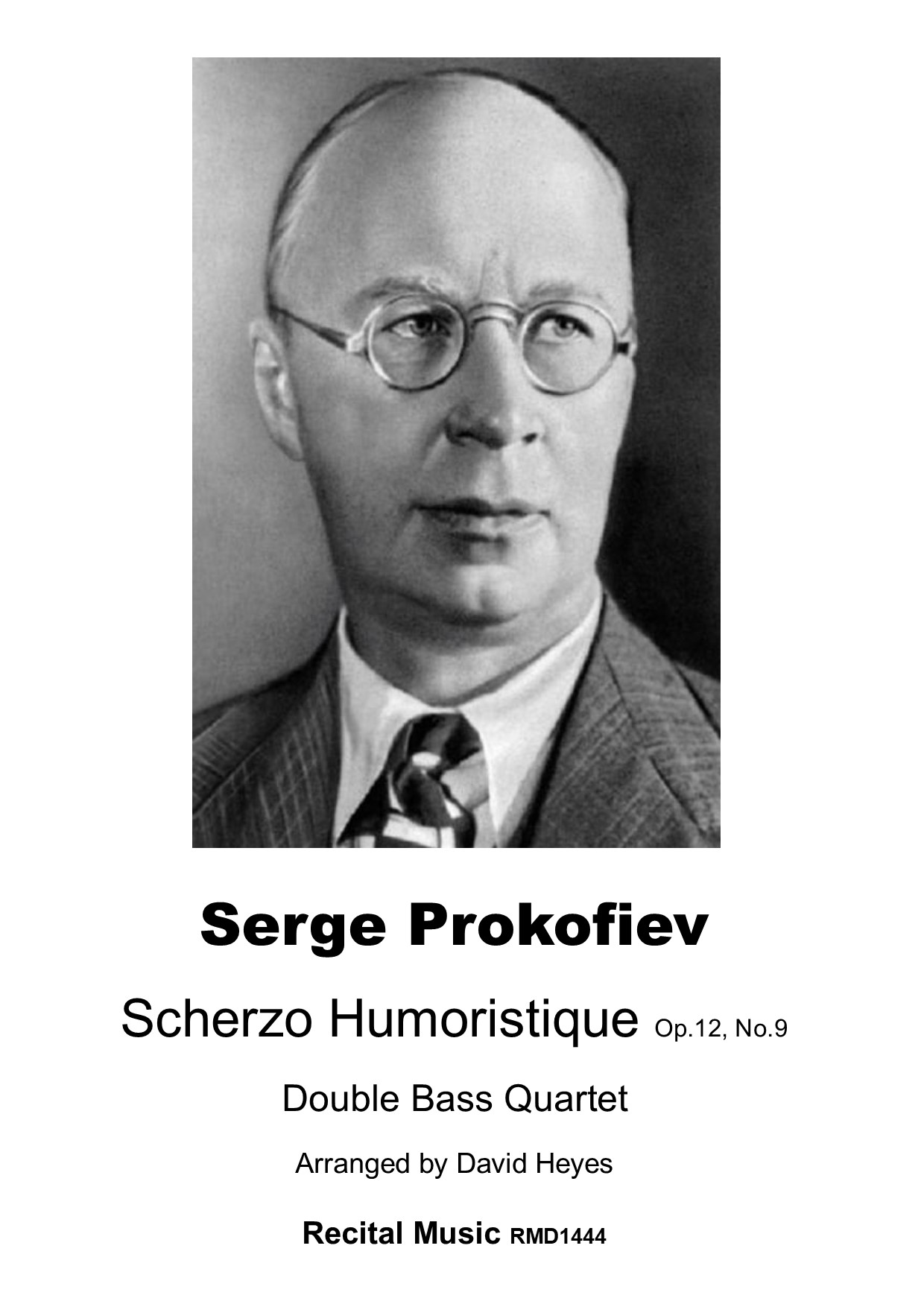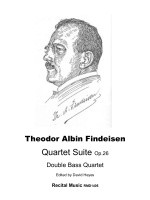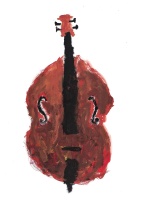Your basket is currently empty!
Scherzo Humoristique

Advanced Views (view_665de49f2ba51) template:
Description
Scherzo Humoristique is a colourful and adventurous work, aimed at the advanced
bass quartet, which offers musical and technical challenges in equal measure across<…br />
the entire range of the double bass.
Composed for solo piano in 1912, when Prokofiev was a student at the St.
Petersburg Conservatoire, Scherzo Humoristique is the ninth of Ten Pieces for Piano
Op.12, subsequently arranged for bassoon quartet by the composer in 1915, which
is the basis for this new edition for Double Bass, Quartet by David Heyes.
Scherzo Humoristique has been described as having a ‘dark humour’ and with
‘glorious harmonies in a gentler middle section’. It is thought to be one of the first
original works for bassoon quartet with ‘healthy doses of rebelliousness, and
comically ugly sections as well’. The original piano version is short and succinct, with
a modern take on harmony and melody, typical of Prokofiev’s unique style, and a
beautifully chordal middle section contrasts music of a more rhythmically quirky and
contrapuntal nature.
R.R.P £9
Our Price £7.65




